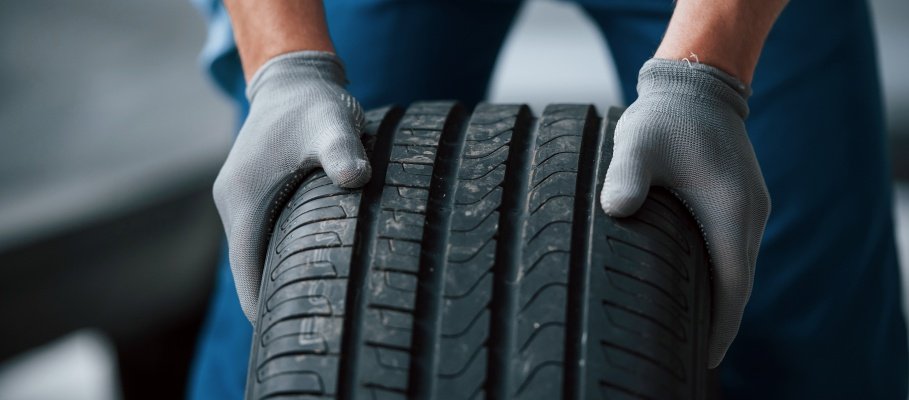Why it’s important to choose the right tires for your semi-truck
Every trucker has heard it a million times: The tires are the only part of the truck touching the road, so take care of them at all times. This advice has become so commonplace that it likely gets overlooked among the wide range of safety and performance checks drivers make each day before hitting the road.
It is imperative, though, that truckers ensure their tires work at peak performance at all times. A damaged tire presents an immediate safety concern for the driver and other motorists on the road. Let’s take a minute and look at what truck drivers should look for in their tires and the best ways to maintain them for safety and efficiency.
How to Pick the Correct Tires for Your Truck
The best tires for each driver depend on the type of truck piloted and the driver’s typical routes. Advances in tire technology continue to provide benefits, but even then, truck drivers may not be comfortable with some of the performance or cost tradeoffs that happen.
The traditional dual tire structure remains the most popular, but wide-based low-resistance tires continue to grow in popularity. As their name suggests, these tires provide less resistance than traditional tires, offering drivers improved gas mileage. When the price of diesel fuel is low, these types of tires are used less, as they need to be replaced more often; however, when the price of fuel climbs above $4 per gallon, they may become more cost-efficient over time.
How to Take Care of Your Truck Tires
No matter what type of tires you use, it is vital they work properly. Here are some tire maintenance checks all drivers should regularly make.
- Check air pressure.
Over- or under-inflated tires can reduce the performance of a truck and alter how it drives or reacts in an emergency. Drivers should manually check their air pressure before every trip to ensure it meets the manufacturer-designated standards. Larger fleets should consider using tire pressure monitoring systems (TMPS) and continuous tire inflation systems (CTIS) on trailers. While they bring an added cost, these systems ensure tire pressure remains safe and consistent.
- Check tread depth.
Along with air pressure, the depth of tire treads should be checked before every trip. The standard way is to put a penny with Lincoln upside down between the treads. If Lincoln’s face is visible, it is time for a new set.
- Rotate tires.
Based on where they are on a truck, tires can receive uneven wear and tear on the tread. Rotating tires every 6,000 to 8,000 miles can help expand their life span. Along with rotating tires, complete a full three-axle wheel alignment as well. While these measures may seem tedious, they go a long way in keeping tires on the road.
- Ensure proper wheel torque.
This is easier than it sounds. Wheel torque is the simple act of adjusting the lug nuts on your wheels. Wheels that are either too tight or too loose can cause damage while driving, so take a few minutes and check each one before you start a trip.
- Practice good habits.
Tires are designed to perform a certain way. Driving too fast, making hard stops, or accelerating too quickly can quicken tire deterioration. Continue to drive in a safe manner that follows all road laws and best practices to protect tires and other valuable equipment.
- Fix problems when they happen.
For busy truckers, it can be easy to neglect small items that need fixing. Too often, these smaller problems grow into larger ones that can increase the cost of repairs. If you notice something is wrong with a tire or any part of your truck, make an effort to fix it as quickly as possible, so it does not turn into a larger problem.
- Stay up to date.
New information about tires and other preventative safety measures constantly change and are continually updated. Even experienced drivers need to ensure they have all the latest training and adhere to new standards and laws when driving. Drivers can never have enough training, so put yourself in a continuous learning state to enjoy long-term success.
Drivers today must work within several standards and regulations to properly operate on the road. This can feel like a lot at times. These steps are important, and taking smart care of your truck and its tires will provide sustainable financial benefits for you and your operation.



